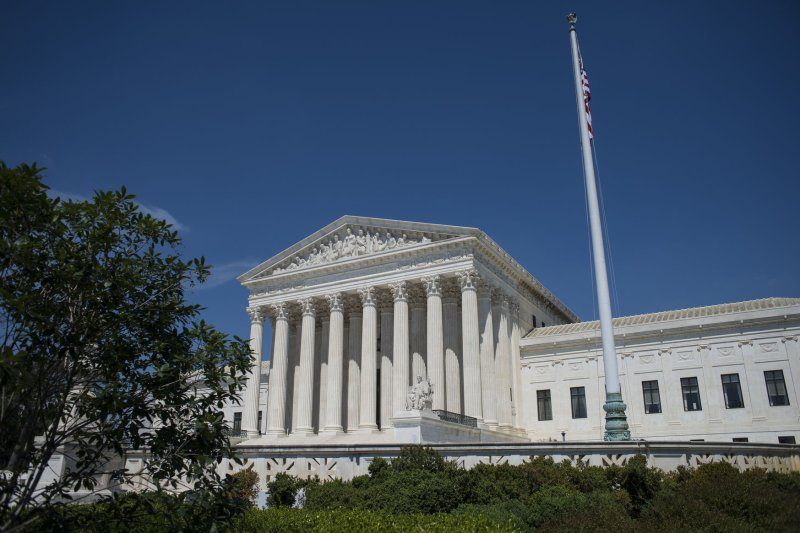The U.S. Supreme Court on Monday ruled North Carolina lawmakers considered race too heavily when drawing up the 1st and 12th Congressional Districts. File Photo by Pete Marovich/UPI |
License Photo
May 22 (UPI) -- The Supreme Court on Monday ruled that North Carolina lawmakers considered race too much when drawing up two congressional districts to increase Republican advantage.
The justices ruled Republicans in North Carolina's state legislature and governor's office in 2011 attempted to place too many African Americans in the 1st and 12th Districts to weaken African-American voting strength elsewhere in the state.
The justices ruled unanimously to reject the 1st District while they rejected the 12th District 5-3. Following the 2010 census, the Republican lawmakers in North Carolina increased the 1st District's black, voting-age population from 48.6 percent to 52.7 percent, while the number of black voters in the 12th District increased from 43.8 percent to 50.7 percent.
The court rejected the argument from North Carolina lawmakers that the purpose of drawing the maps was not race discrimination but an attempt to gain a partisan advantage.
In the opinion of the court, Justice Elena Kagan wrote that the 1st District "produced boundaries amplifying divisions between blacks and whites," while in the 12th, "race, not politics, accounted for the district's reconfiguration."
African-American and Democratic critics accused Republicans of drawing districts to contain more African Americans than necessary to keep surrounding districts more white and more Republican.
"This is a watershed moment in the fight to end racial gerrymandering," Eric Holder, the former attorney general under Barack Obama who now chairs the National Democratic Redistricting Committee, said in a statement. "Today's ruling sends a stark message to legislatures and governors around the country: Racial gerrymandering is illegal and will be struck down in a court of law."
Justice Samuel Alito, who wrote the dissenting opinion on the 12th District, was joined by Chief Justice John Roberts and Justice Anthony Kennedy in arguing the state officials drew up the districts to help Republicans, not to disenfranchise black voters.
Alito said those challenging the 12th dDstrict did not show race was the primary motivator in the district's establishment, not partisanship.
"Partisan gerrymandering is always unsavory, but that is not the issue here," Alito wrote. "So long as the legislature chose to retain the basic shape of District 12 and to increase the number of Democrats in the district, it was inevitable that the Democrats brought in would be disproportionately black."















